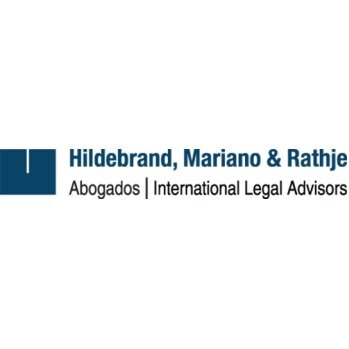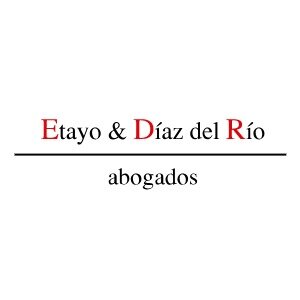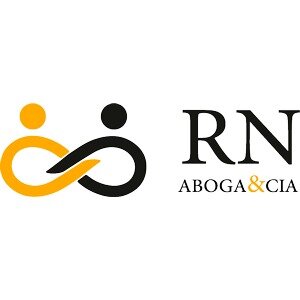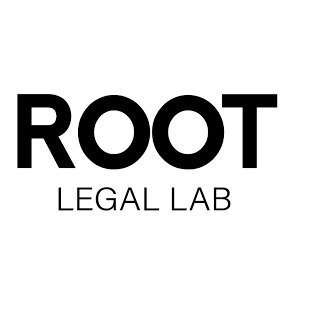Best Conveyancing Lawyers in Seville
Share your needs with us, get contacted by law firms.
Free. Takes 2 min.
Free Guide to Hiring a Real Estate Lawyer
List of the best lawyers in Seville, Spain
About Conveyancing Law in Seville, Spain
Conveyancing is the legal process of transferring property ownership from one party to another. In Seville, as in the rest of Spain, this process is governed by national law, with some regional nuances and practices specific to Andalusia. Property transactions in Seville often involve different types of real estate, from residential homes to commercial spaces and rural land. The process typically covers due diligence, drafting and reviewing contracts, ensuring clear title, and registration with public authorities. Navigating Spanish property law can be challenging, making it crucial to understand each step, especially if you are not familiar with the local language or legal system.
Why You May Need a Lawyer
Hiring a lawyer experienced in conveyancing is highly advisable when buying or selling property in Seville. Here are some common situations where legal help is beneficial:
- You are a foreigner unfamiliar with Spanish property law or language.
- You wish to ensure the property is free of debt, charges, or other encumbrances.
- You need guidance on complex issues, such as inheritance or joint ownership.
- You require assistance with contracts, including drafting or reviewing terms for fairness and legality.
- You want support through negotiations or resolving disputes with the other party.
- You need help verifying planning permissions or obtaining necessary certificates.
A lawyer will safeguard your interests, ensure compliance with local regulations, and facilitate a smooth transaction.
Local Laws Overview
Spanish conveyancing law is mainly regulated by the Civil Code, but regional practices and municipal by-laws in Seville and Andalusia can play a significant role. Key legal aspects to consider include:
- Due diligence: Before purchasing, a thorough check must be conducted on the property’s legal status and debts.
- Land Registry: All transfers must be recorded in the Land Registry (Registro de la Propiedad) to make them effective against third parties.
- Notarial Deed: The sale is formalized by signing a public deed (escritura pública) before a notary.
- Taxes and Fees: Taxes such as the Property Transfer Tax (ITP) or Value Added Tax (IVA), municipal taxes (such as Plusvalía Municipal), and registration fees apply.
- Reservation and Deposit: Often, a private contract is signed with a deposit (arras) before proceeding.
- Urban Planning: Due diligence on planning permissions, land classification, and habitability certificates is required.
Adhering to these laws and steps helps prevent future legal problems and ensures a successful transfer of ownership.
Frequently Asked Questions
What is conveyancing, and why is it important in Spain?
Conveyancing is the legal process of transferring property ownership. It ensures that the transaction is valid, the title is clear, and all legal requirements are met, protecting both buyer and seller.
Can foreigners buy property in Seville?
Yes, foreigners can legally purchase property in Seville. However, it is recommended to have a legal expert guide you through the process due to language and regulatory complexities.
Is it required to use a notary in Seville for property transactions?
Yes, the final transfer of property must be formalized by signing a public deed before a Spanish notary. This step is mandatory for the registration of the property.
What types of taxes are involved in property conveyancing?
Typical taxes include the Property Transfer Tax (ITP) for resale properties, or VAT (IVA) for new builds, as well as municipal taxes like Plusvalía Municipal and various registration and notary fees.
What are the main risks in buying property in Seville?
Risks include unclear title, undisclosed debts or charges, unapproved building works, or hidden legal disputes. Comprehensive due diligence and legal review minimize these risks.
What documents are needed to buy property?
Necessary documents include the seller’s title deed, a recent land registry certificate, proof of municipal tax payments, identification documents, and often a certificate of habitability and energy efficiency.
What role does the lawyer play during conveyancing?
A lawyer conducts due diligence, checks for encumbrances, negotiates contract terms, manages tax and fee payments, ensures compliance, and acts as your representative if needed.
How long does the conveyancing process take in Seville?
The process usually takes six to twelve weeks, depending on factors such as due diligence, obtaining documents, and scheduling the notary appointment.
How much does it cost to hire a conveyancing lawyer?
Fees vary, but typically range from 1 percent to 1.5 percent of the property price, plus VAT, depending on the complexity of the transaction and lawyer’s experience.
Can the lawyer represent me if I am not in Spain?
Yes, your lawyer can act as your legal representative through a power of attorney, allowing you to complete the process even if you are abroad.
Additional Resources
Several governmental bodies and professional organizations offer information and support related to conveyancing in Seville:
- Spanish Land Registry (Registro de la Propiedad)
- Notary Public Offices (Notarías)
- Official College of Notaries of Andalusia (Colegio Notarial de Andalucía)
- Andalusian Consumer Office (Oficina de Información al Consumidor de Andalucía)
- Seville City Council Urban Planning Department (Gerencia de Urbanismo de Sevilla)
- Law Society of Seville (Ilustre Colegio de Abogados de Sevilla)
These resources can help you find professionals, clarify doubts, and access official documentation.
Next Steps
If you require legal assistance in conveyancing in Seville:
- Gather all available information about the property, including documentation and relevant contacts.
- Consult with a qualified conveyancing lawyer, preferably one who speaks your language and has local experience.
- Request a detailed quote outlining all potential legal fees and associated costs.
- Discuss your specific needs and concerns with your lawyer to ensure proper protection and guidance.
- Consider granting your lawyer power of attorney, especially if you will not be present in Spain during the transaction.
- Follow your lawyer’s advice carefully through every stage of the conveyancing process.
Taking these steps will help you navigate the conveyancing process with confidence and ensure your investment is safe and legally secure.
Lawzana helps you find the best lawyers and law firms in Seville through a curated and pre-screened list of qualified legal professionals. Our platform offers rankings and detailed profiles of attorneys and law firms, allowing you to compare based on practice areas, including Conveyancing, experience, and client feedback.
Each profile includes a description of the firm's areas of practice, client reviews, team members and partners, year of establishment, spoken languages, office locations, contact information, social media presence, and any published articles or resources. Most firms on our platform speak English and are experienced in both local and international legal matters.
Get a quote from top-rated law firms in Seville, Spain — quickly, securely, and without unnecessary hassle.
Disclaimer:
The information provided on this page is for general informational purposes only and does not constitute legal advice. While we strive to ensure the accuracy and relevance of the content, legal information may change over time, and interpretations of the law can vary. You should always consult with a qualified legal professional for advice specific to your situation.
We disclaim all liability for actions taken or not taken based on the content of this page. If you believe any information is incorrect or outdated, please contact us, and we will review and update it where appropriate.















